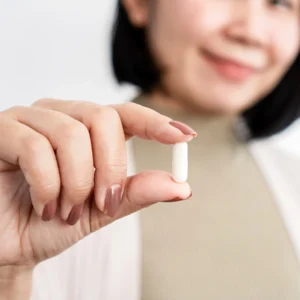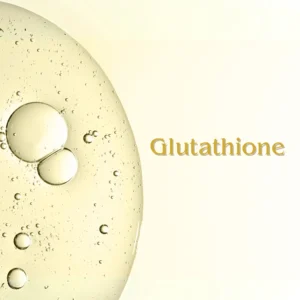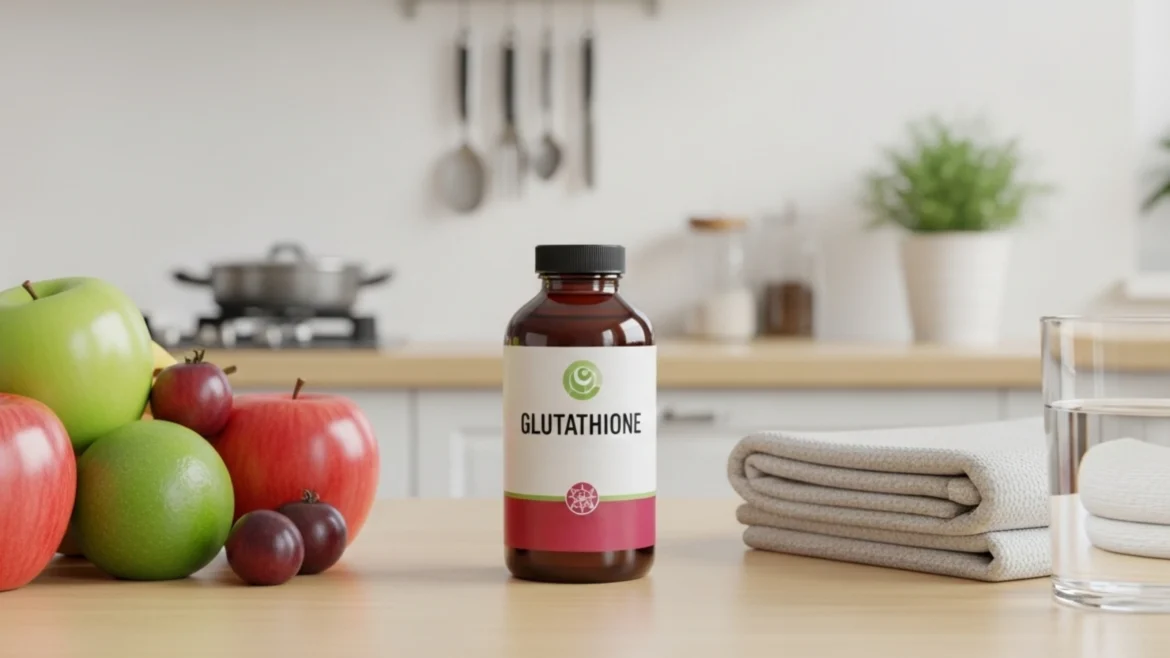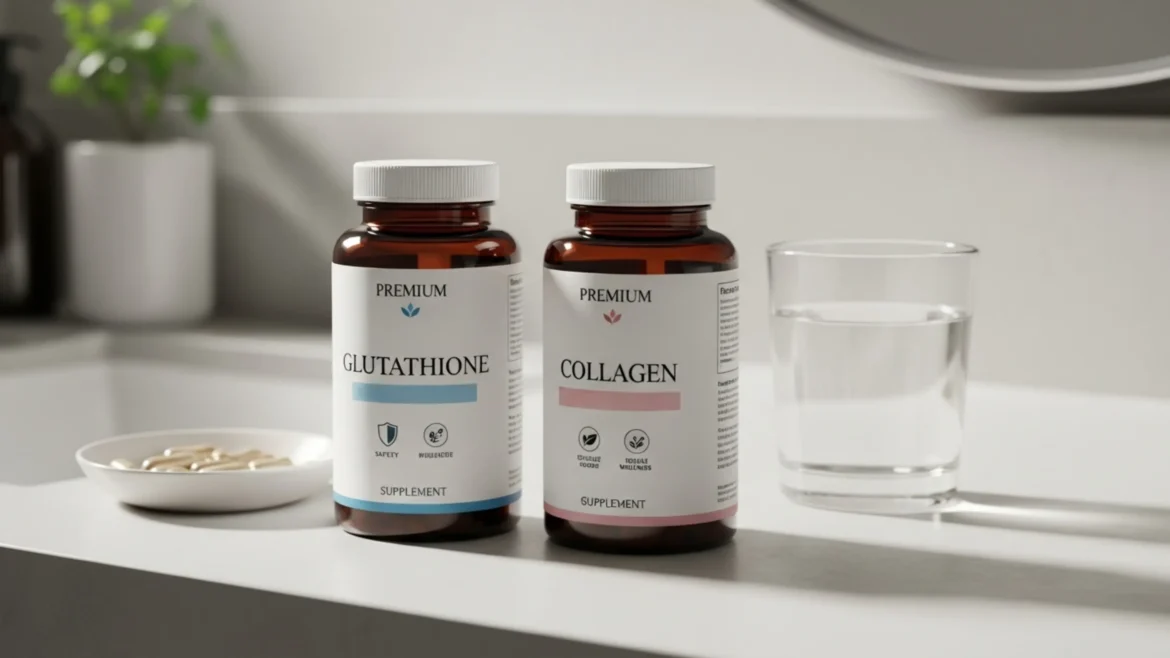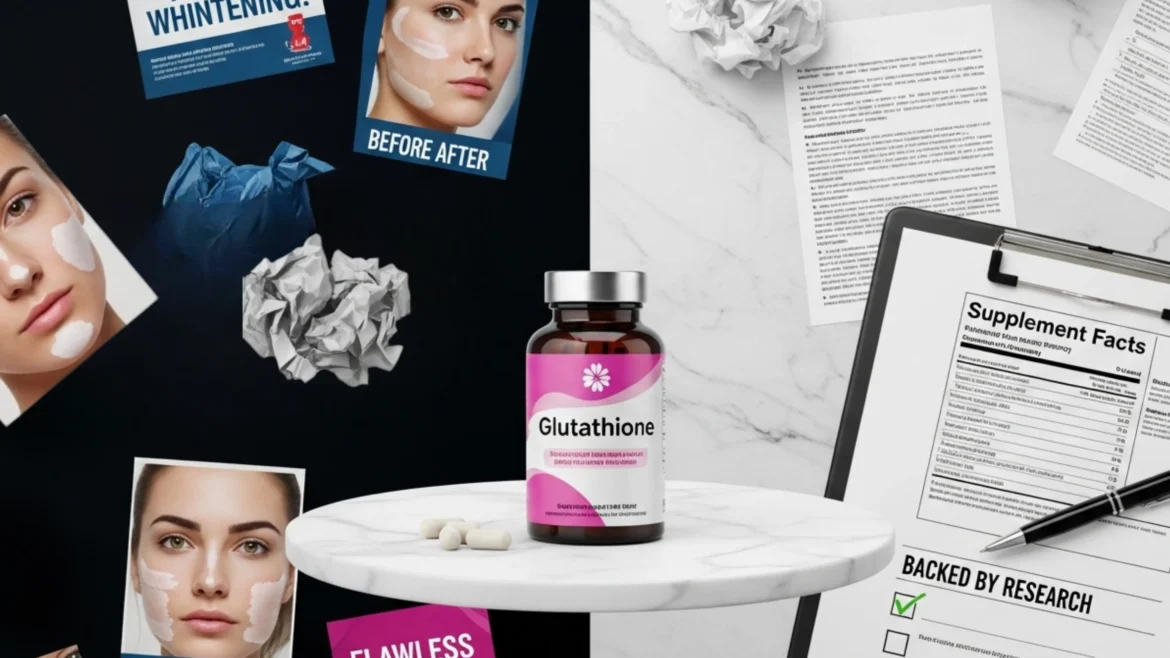Keeping your skin glowing and youthful isn’t just about what you apply on the outside. What you feed your body from the inside matters just as much—if not more. Two ingredients often talked about in the world of skin health are glutathione and collagen. While each one has its own benefits, together they create a powerful duo that helps you fight signs of aging and maintain radiant skin.
Let’s explore how they work—and why they’re worth adding to your skincare routine.
Highlights:
- Taking glutathione + collagen together gives your skin both defense and restoration. One shields, the other rebuilds—so you glow longer and age more gracefully.
- For best results, take glutathione in the morning on an empty stomach, and collagen at night with or after food—and pair them with Vitamin C to boost absorption.
- While both are generally safe, it’s best to consult your doctor before starting any new supplement, especially if you’re pregnant, breastfeeding, or managing a health condition.
Table Of Contents
What Exactly is Glutathione?

Photo from Canva Stock Images
Glutathione is often called the “master antioxidant.” It’s a substance that your body produces naturally. Its main job? To protect your cells from damage caused by stress, pollution, and everyday toxins.
But beyond its internal benefits, glutathione has gained popularity for its effect on skin. Many people take it to brighten their complexion, reduce dark spots, and achieve a more even skin tone. That’s because glutathione helps block melanin production—the pigment that gives skin its color.
And the best part? It doesn’t just make you look good. It helps your body feel better too by supporting your liver and immune system.
Why Collagen is Your Skin’s Best Friend
Now, let’s talk about collagen. It’s a protein that makes up about 75% of your skin. Think of it as the framework that keeps your skin firm, smooth, and elastic. Without enough collagen, skin starts to sag, wrinkles form, and that youthful bounce begins to fade.
Sadly, collagen levels drop as we age—especially after your mid-20s. Factors like too much sun, stress, and lack of sleep can make it decline even faster. That’s why many people turn to collagen supplements to support their skin from the inside.
When you take collagen regularly, you’re helping your body rebuild and repair its skin structure. Over time, this can lead to fewer fine lines, better hydration, and skin that looks more plump and healthy.
Aging and Skin: What’s Really Going On?
Before we talk about how glutathione and collagen work together, let’s quickly understand what causes skin to age.
As you grow older, your body produces less collagen. Your skin also starts to lose moisture, cell turnover slows down, and oxidative stress takes its toll. This leads to visible changes like wrinkles, dullness, uneven tone, and loss of elasticity.
Some of this is natural—but a lot is influenced by lifestyle. Sun exposure, poor diet, lack of sleep, and environmental pollution speed up the aging process. That’s where supplements like glutathione and collagen can help slow things down.
Why Glutathione and Collagen Work Better Together

Photo from Canva Stock Images
Glutathione and collagen are both incredibly beneficial for skin health. But when taken together, their effects don’t just add up—they complement each other, creating a more powerful approach to anti-aging and skin support. Here’s why they make such a great team:
1. Glutathione Protects What Collagen Builds
- Acts as a shield against free radicals
Glutathione neutralizes harmful molecules (free radicals) that damage skin cells and speed up aging. - Prevents collagen breakdown
Oxidative stress is a major cause of collagen loss. Glutathione protects existing collagen from being destroyed. - Brightens skin tone
While collagen focuses on structure, glutathione helps reduce pigmentation and evens out your complexion—giving you that clear, radiant glow.
2. Collagen Rebuilds What Glutathione Protects
- Restores skin structure and firmness
Collagen strengthens the skin barrier, reducing sagging and improving elasticity. - Smooths out wrinkles and fine lines
Regular intake of collagen promotes skin regeneration, helping skin appear plumper and more youthful. - Boosts hydration and resilience
Collagen enhances the skin’s ability to retain moisture, making it look dewy and healthy.
3. They Support Each Other’s Function
- Glutathione supports collagen production
By reducing inflammation and oxidative stress, glutathione creates a healthy internal environment where collagen can thrive. - Collagen gives glutathione visible results
While glutathione works on cellular protection, collagen delivers the structural improvements you can see and feel. - Both need Vitamin C to work at their best
Taking them together with Vitamin C boosts absorption and maximizes the skin-enhancing benefits of both.
4. The Result: Healthier, Brighter, More Youthful Skin
- Fewer signs of aging (wrinkles, dullness, sagging)
- More even skin tone and reduced dark spots
- Smoother, firmer, and plumper skin
- Better skin protection against daily environmental stress
How to Take Them for Best Results
Timing and consistency make a big difference when it comes to supplements.
Most people take glutathione in the morning on an empty stomach. This allows for better absorption and gives your body a head start in fighting off oxidative stress. Collagen, on the other hand, is best taken at night—with or after food. This is when your body naturally enters repair mode.
Some also take Vitamin C alongside glutathione and collagen (it is suggested to take Vitamin C after a light meal or breakfast), as it helps boost their absorption and effectiveness. And don’t forget the basics: drink plenty of water, get enough sleep, and avoid smoking and too much sun.
Keep in mind that results don’t happen overnight. You might start noticing improvements in your skin after 4 to 8 weeks of consistent use.
Are There Any Side Effects?
Both glutathione and collagen are considered safe for most people. However, some may experience mild side effects like bloating or nausea—especially if they take too much too soon.
If you’re pregnant, breastfeeding, or have a medical condition, it’s always best to consult a healthcare professional before starting any supplement.
Also, quality matters. Choose products from reputable brands to make sure you’re getting what your body truly needs—without harmful fillers or additives.
Glutathione vs. Collagen vs. Both: What’s the Difference and Why Use Both?
| Aspect | Glutathione | Collagen | Glutathione + Collagen |
| What It Is | Master antioxidant produced by the body | Main structural protein found in skin, bones, and connective tissues | A powerful antioxidant-protein combo that protects and rebuilds skin from the inside |
| Main Function | Detoxifies, fights oxidative stress, and boosts immune health | Repairs and strengthens skin, joints, and bones | Protects and repairs: Prevents damage and restores skin structure |
| Skin Benefits | – Brightens skin tone – Reduces dark spots – Protects from damage | – Firms skin – Reduces wrinkles – Improves elasticity | – Smoother texture – Glowing, even-toned skin – Plumper, younger-looking appearance |
| Anti-Aging Role | Slows down aging by neutralizing free radicals | Rebuilds collagen lost due to age | Combats aging from both ends: Stops breakdown and boosts renewal |
| Best Time to Take | Morning on an empty stomach | Evening with or after food | Glutathione in the morning, collagen in the evening for optimal 24-hour skin support |
| Results Timeline | 4–8 weeks of consistent use | 4–12 weeks depending on dosage and lifestyle | Noticeable changes in 4–6 weeks; best results in 8–12 weeks when used consistently |
| Form Options | Capsules, sublingual tablets, IV drips, powders | Powders, capsules, drinks, gummies | Available separately or in combination formulas (capsules, sachets, or drinks) |
| Who Should Be Cautious | Pregnant/breastfeeding women, people with health conditions | Same as glutathione | Same precautions; always consult your doctor before starting any supplement combo |
Final Thoughts: A Gentle Boost for Your Skin Journey

Glutathione and collagen aren’t magic pills—but they’re a powerful pair when supported by healthy habits. With consistent use, they can give your skin the care it needs to age beautifully and naturally. Glutathione defends, collagen rebuilds. It’s that simple.
Together, they work behind the scenes—quietly improving your glow, firmness, and tone. And when you pair them with good sleep, hydration, and sun protection? That’s when the real magic happens.
So if you’re ready to glow from the inside out, this dynamic duo might just be the gentle, effective boost your skin has been waiting for.
FAQs
Is it better to take them separately or in a combo supplement?
Either works! Combo supplements are convenient, but taking them separately allows you to control timing and dosage more precisely. Just make sure you’re choosing high-quality products from trusted brands.
How long before I see results?
Most people notice visible improvements in their skin after 4 to 8 weeks of consistent use. Results vary depending on your body, lifestyle, and supplement quality, so patience and consistency are key.
Can both men and women take glutathione and collagen?
Absolutely, yes. Both men and women can benefit from taking glutathione and collagen. These supplements support overall skin health, boost antioxidant levels, and improve skin firmness—regardless of gender. In fact, men who are concerned about aging, dull skin, or joint health may find these just as helpful as women.
What matters most is your individual skin goals and health needs, not your gender.
How should I store glutathione and collagen supplements?
Keep them in a cool, dry place away from direct sunlight. Avoid humid areas like bathrooms. Some liquid or powder forms (especially glutathione) may need refrigeration after opening so always check the label for storage instructions.
Can I take glutathione and collagen with other supplements?
In most cases, yes. Glutathione and collagen can be taken with multivitamins, Vitamin C, biotin, or hyaluronic acid without issues. However, if you’re taking medications or managing a health condition, it’s best to check with a healthcare professional to avoid interactions.







